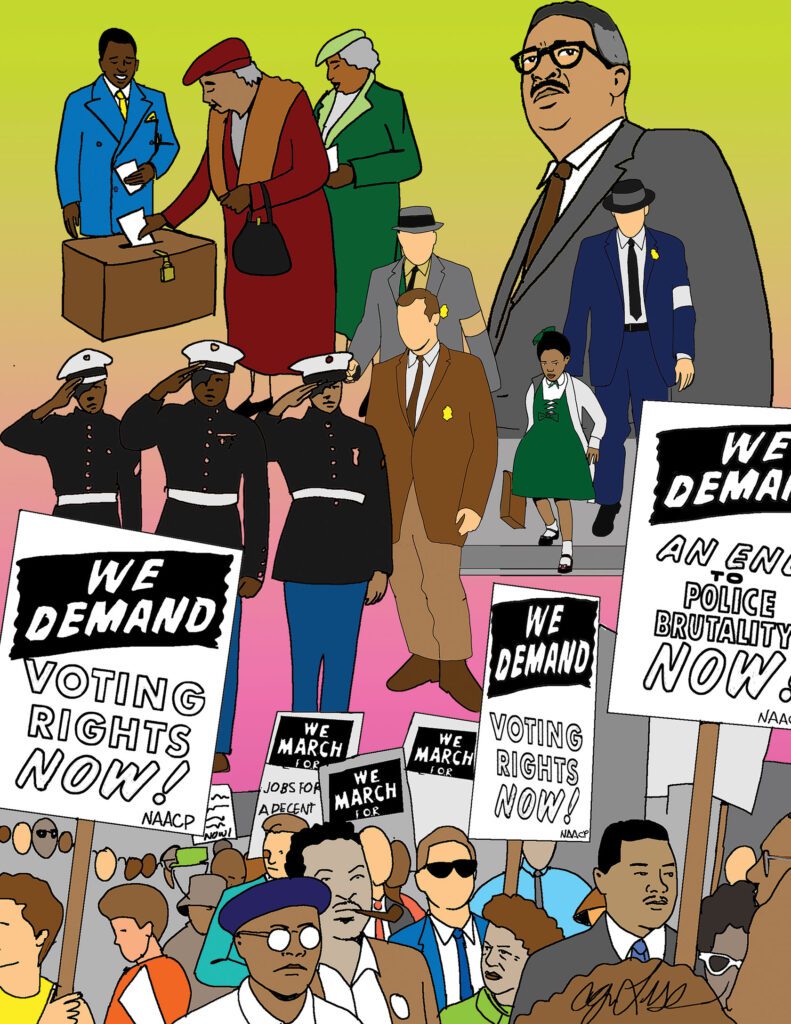
As we welcome the NAACP national convention to our city, I am joyful because America’s oldest civil rights group has chosen to come back to Boston and gather in one of the country’s oldest civil rights cities.
This convention comes at a crucial time in our country’s history, because our country is at an historic crossroads, threatened with a tremendous rise of racism, antisemitism and anti-LGBTQ+ hate.
This ominous trend started with the manipulation of the facts by one political candidate for short-term gain. It has become his party’s main pitch and marketing message, pulling out one of the oldest tricks in the political playbook: Divide and conquer by stoking fear and blaming others for the country’s problems.
This a fight that Black Americans have always had to battle, a battle now at the core of our country’s survival, with the character of our nation at stake. This never-ending battle against racism and bigotry has long been waged from our city of Boston.
Black Bostonians have been in the forefront of the battle against this kind of injustice, from the free Black people in the 1700s, to the abolitionists and Civil War soldiers of the 1800s, to civil rights warriors in the 1900s and 2000s. William Monroe Trotter, W.E.B. Du Bois, Florence LeSueur, Ruth Batson, Martin Luther King, Coretta Scott King, Malcolm X, Elma Lewis, Mel King, Ayanna Pressley — and the list goes on.
Welcoming the NAACP to our city and helping its members chart a strategy to push back on this unprecedented rise of racism is the most important aspect of the convention. We in Boston should be focused on helping the civil rights organization become more effective by drawing on our community’s storied history of civil rights leadership. Reducing this visit to a potential makeover for the city’s lingering racist reputation from the violent white reaction to school desegregation a half-century ago minimizes the convention’s national significance.
We as the host city for the 2023 NAACP convention need to remind all visitors that we have always stood, battled, struggled and persevered for the betterment of all Black people. As delegates gather to celebrate our beautiful Blackness, strategize and empower ourselves, we must share those legacies and lessons learned to help continue this crucial struggle against resurgent challenges.
Let us not forget what Vice President Kamala Harris said recently in response to Florida’s twisted educational edict that claims slavery helped some slaves and, by implication, somehow wasn’t horrific torture and imprisonment of millions.
“How is it that anyone could suggest that in the midst of these atrocities that there was any benefit to being subjected to this level of dehumanization?” Harris said in a speech in Jacksonville, Florida.
The day before, the vice president said, referring to the state’s Republican officials, “They insult us in an attempt to gaslight us, and we will not stand for it.”
What is at stake this week must not be about burnishing a city’s reputation. It must be about maximizing strategies for the betterment of Black people and our country as a whole. It will take creativity, persistence, energy and fearlessness to overcome the retro hate that is being propagated and even written into law in states like Florida.
This is a moment in history when the country needs the NAACP to be at its best. More people of all races should join as members of what has never been a strictly Black organization. Boston was its first local branch, and its first president, a white man from Roxbury named Moorfield Storey, was the first national president of the NAACP.
Major corporations in the Boston area — who unanimously profess a commitment to diversity, equity and inclusion — should step up and contribute to the NAACP, as some already have, to support this hometown convention. Their contributions are needed to continue to finance even more robust advocacy of this primarily volunteer organization.
For its part, the NAACP, in order to boost its impact, needs to build more and stronger alliances with other organizations that believe America can and should fulfill its civic creed of equality, opportunity and fairness to all.
At another fraught moment for Black Americans, following the 1980 election of a race-baiting Ronald Reagan, the leader of the national NAACP, who was also a Baptist minister, invoked the Bible to buck up flagging spirits. “This too shall pass,” Benjamin L. Hooks advised. The Reagan presidency did. The country will get past his Trump-inspired legacy, too — and sooner with the NAACP in top fighting trim.







